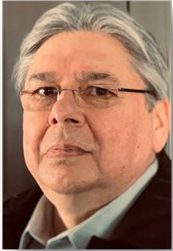Image Caption
Summary
Local Journalism Initiative Reporter
Windspeaker.com
Update Aug. 15, 2023:
In a brief email received by Windspeaker.com from the federal Department of Finance on Aug.15, the department confirmed that Finance Minister Chrystia Freeland sent a letter Aug. 2 to First Nations communities and Métis governments which shared “the principles to guide Indigenous economic participation in Trans Mountain.” The email said further information would be forthcoming.
Original story:
The federal government is inviting the Indigenous nations that have land along the Trans Mountain pipeline to a meeting to discuss a special-purpose vehicle that will allow them to have an ownership stake in the Crown-owned pipeline.
However, that same invitation has not been issued to the five Indigenous-led groups that formed in the past few years with the express purpose of helping their members get an ownership stake in Trans Mountain.
The groups—Project Reconciliation Initiative, Western Indigenous Pipeline Group, Nesika Services, Natural Law Energy and Indigena Capital—were formed shortly after Justin Trudeau’s Liberal government purchased Trans Mountain from Kinder Morgan Inc. in 2018. The purchase was made to ensure the Trans Mountain expansion went ahead. This is the only pipeline that moves oil from Alberta to the coast in British Columbia.
“None of us (groups) are invited into phase one,” said Michelle Goodkey, chief sustainability officer and vice president external relations with Project Reconciliation.
Project Reconciliation was formed in 2018.
“People should understand that we're not at the table. That (invitation) is with the nations directly with the government. So, individuals that are part of those organizations, those nations, are invited, but the actual entities, those five, including us, are not invited to that phase one,” said Goodkey.
Bloomberg reported earlier this week that a letter dated Aug. 2 went from federal Finance Minister Chrystia Freeland to the groups saying the government will provide them with access to capital so they don’t have to risk their own money to participate in a buy-in of the pipeline.
However, that’s not the letter Goodkey says Project Reconciliation received.
“The letter just said, ‘This is happening and we’ll see you in phase two,’ in a nutshell,” said Goodkey.
She wouldn’t speculate as to why the groups have been left out.
“There's obviously some sensitivities going on here. I don't know what it is, but yeah, we are not part of the space,” she said.
Goodkey adds that none of the five organizations have had any input into whatever proposal the government will be putting forward to the 120 Indigenous nations that are located along the Trans Mountain pipeline.
“After three to five years of all of us working on the ground with communities, none of us are at the table,” she said.
Goodkey says her understanding is that phase one will not be a sale of the pipeline as the nations will not be required to put money forward.
“The government's going to be finding the money for them, for whatever. Maybe it's a loan guarantee or whatever it might be. I don't know what it is,” she said.
It is also unclear what percentage equity in the pipeline will be made available to the communities in the first phase.

It was Project Reconciliation’s strategy to eventually have 100 per cent ownership of the pipeline, says chair Robert Morin.
“But now with the letter and the process that's outlined, I guess we're going to see where we have an opportunity to participate. We’re very interested. There's still revenue to be made off this project,” he said.
He asserts that belief despite being concerned about the massive increase in the cost of the expansion. Canada purchased the line for $4.5 billion and now the expansion cost has quadrupled to $31 billion.
While Morin says profitability will depend on the formula worked out by the government for the sale of the pipeline, he adds that the rights to Trans Mountain pipeline are still important.
“As energy times may change, it may not always be a pipeline for oil. It might be of some other use later on, so we'll see,” he said.
Project Reconciliation was formed as a “vehicle to be utilized for the recognized Indigenous communities on a go-forward basis so that they control and own the pipeline,” said Morin.
As owners, the communities would decide their own governance and representation on the board.
“In ownership we will get and have a real say in operation of that pipeline, which would also create a safeguard on the real direction in which the safety and the environment is protected,” said Morin.
Windspeaker.com reached out to Western Indigenous Pipeline Group and Nesika Services but did not get a response from them.
Windspeaker.com reached out to the Office of the Deputy Prime Minister and Minister of Finance but were told that a response could not be provided before deadline.
Local Journalism Initiative Reporters are supported by a financial contribution made by the Government of Canada.

